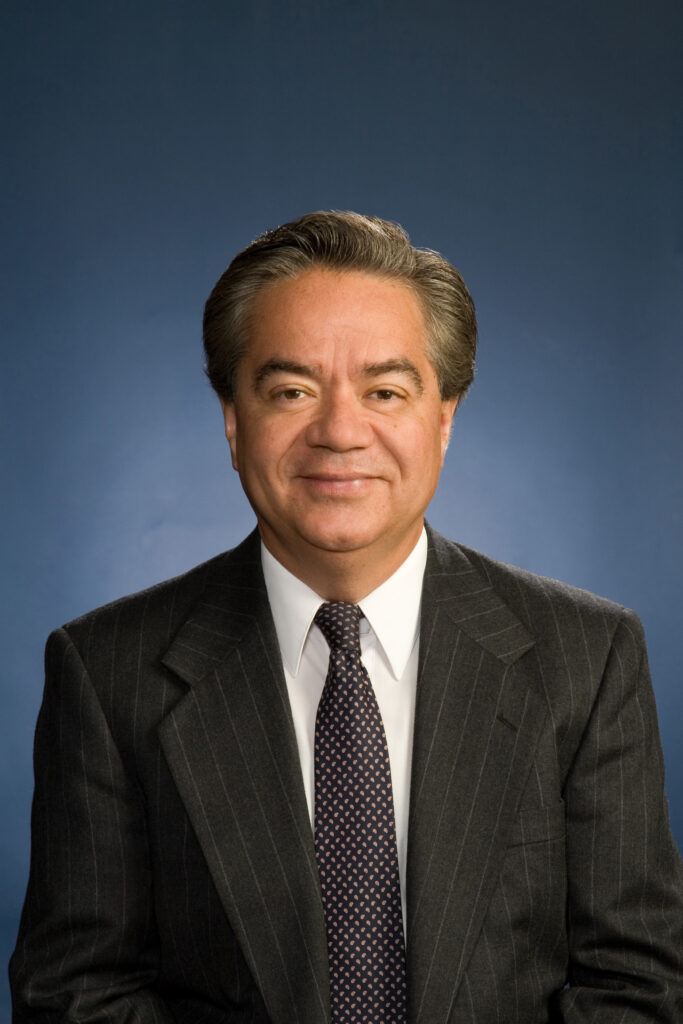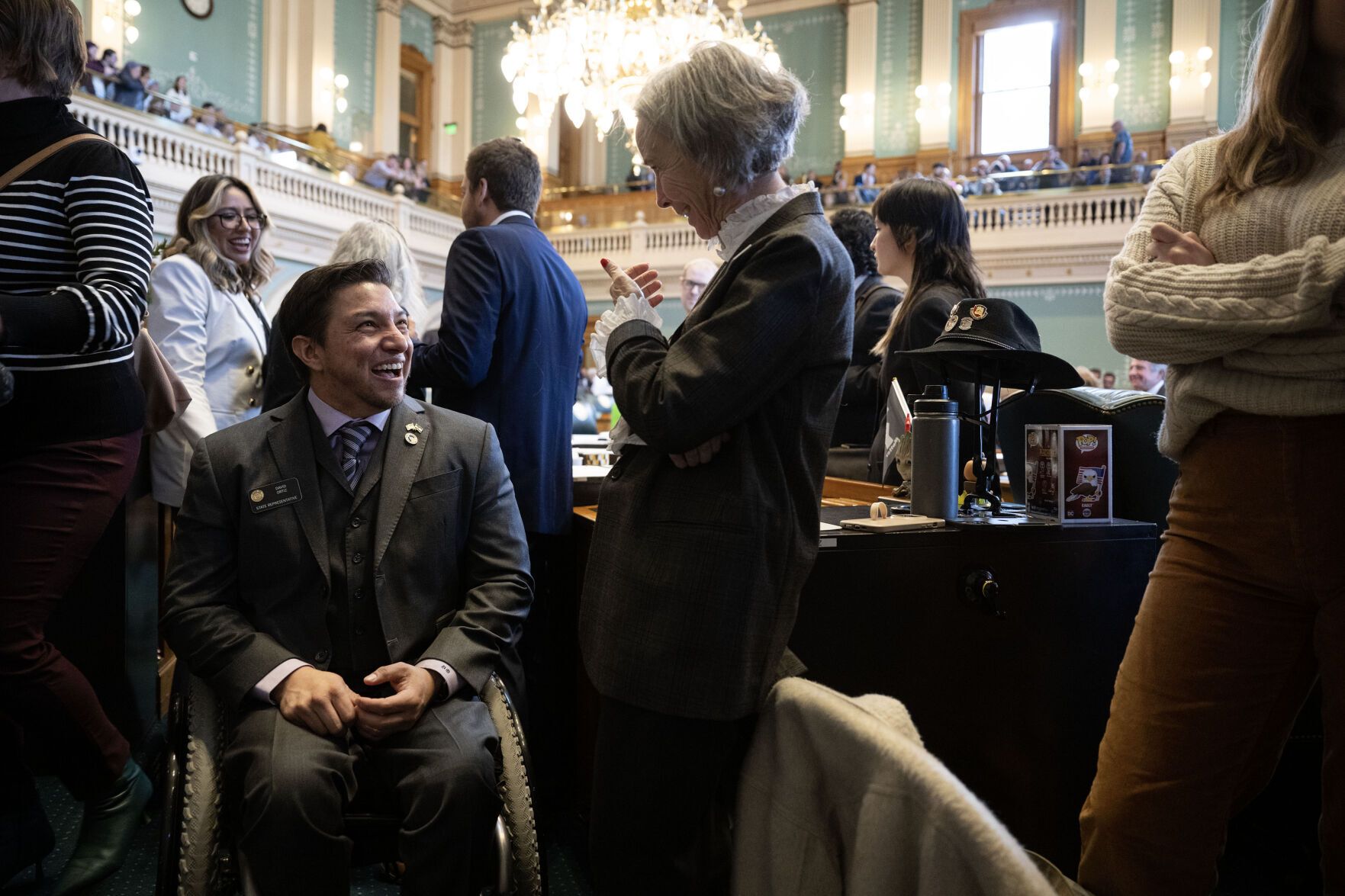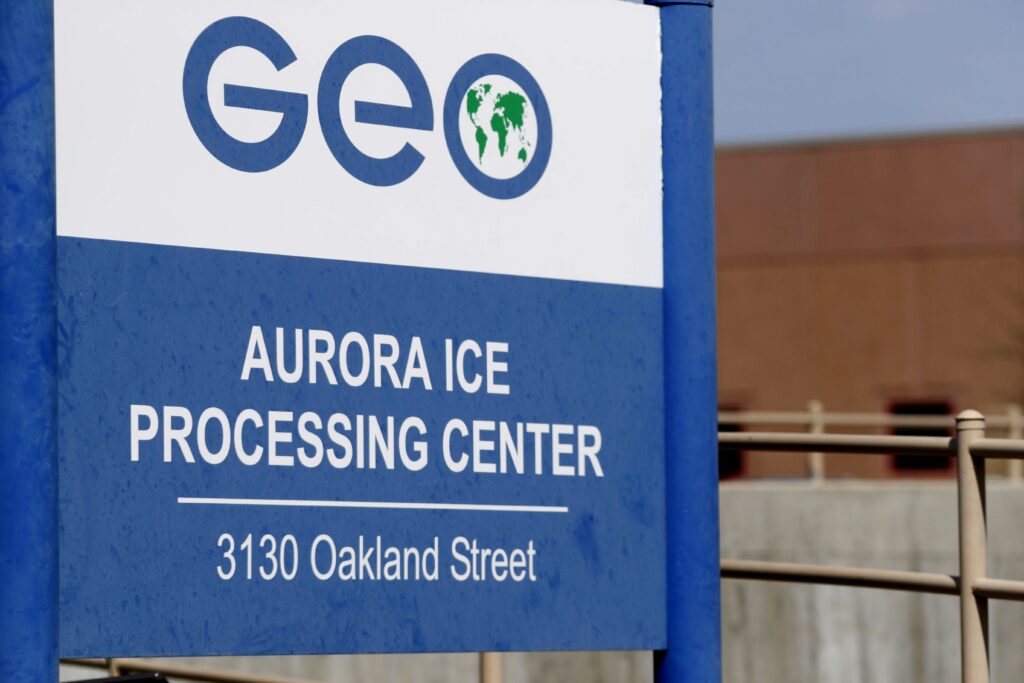Federal judge blocks Colorado law requiring social media platforms to provide warnings to children

A federal judge blocked Colorado on Thursday from implementing a requirement that social media companies notify users younger than 18 of the effects to their mental and physical health from using the platforms.
Lawmakers enacted House Bill 1136 by wide margins in 2024, with a goal of providing “research-based education and interventions” about minors’ use of social media. However, the trade association NetChoice sought to prevent the state from enforcing one provision that obligates certain platforms to provide disclosures about data-supported health impacts.
In a Nov. 6 order, U.S. District Court Senior Judge William J. Martínez agreed with NetChoice that the challenged provision likely infringed upon social media companies’ First Amendment rights in an unconstitutional fashion. Although Martínez did not dispute Colorado’s compelling interest in regulating children’s social media use, he believed the regulation was not fashioned as narrowly as it could be.
“The Court notes, for example, that instead of imposing the compelled speech requirement, Colorado could have incentivized social media companies to voluntarily provide these disclosures to their minor users, or it could have elected to provide minors with these disclosures itself,” wrote Martínez, a Barack Obama appointee.

One of HB 1136’s sponsors, Sen. Judy Amabile, D-Boulder, disagreed with Martínez’s assessment.
“Social media companies are profiting from drawing our kids onto their platforms and keeping them scrolling. Real harm is happening,” she said. “These kids don’t stand a chance against mega corporations’ well designed algorithms that are feeding them content. This was a pretty benign attempt to give kids some help taking a break.”
In considering HB 1136, lawmakers heard from children who described their addiction to scrolling through social media. Experts also explained how social media engagement triggers the reward-seeking portions of the brain in a way that creates pressure to be seen and noticed.
Witnesses who testified against the bill argued it was fundamentally a parent’s role to set boundaries for their children’s social media use.
In August, NetChoice filed suit against Attorney General Phil Weiser, whose office would enforce violations of HB 1136 through Colorado’s consumer protection law. Representing Facebook, Instagram, X, YouTube, Reddit and other platforms, NetChoice argued the law unconstitutionally compels companies to express the state’s message.
“Colorado wants to commandeer these websites to convey the State’s own message to users that covered websites are harmful and should be avoided or rarely used,” wrote the organization’s attorneys, adding that the law excludes numerous electronic platforms from the notification requirement.
“For example, it would require warning notifications for a 17-year old watching lectures on YouTube for more than an hour, or a 16-year old marking herself safe from a natural disaster on Facebook in the middle of the night,” argued NetChoice. But “the Act does not apply to a 17-year old spending multiple hours on gaming websites or staying up until 3:00 a.m. streaming shows on Hulu.”

The government responded by pointing to health concerns about children’s use of social media. A 2023 advisory from the U.S. surgeon general indicated the “current body of evidence” suggests that any benefits children receive from social media come with “a profound risk of harm” to mental health and wellbeing, such as depression and anxiety.
Following a hearing last month, Martínez’s written order granted a preliminary injunction against the challenged provision, which was set to take effect on Jan. 1, 2026.
“The Court fully appreciates Colorado’s legitimate effort to protect the children and adolescents of our state from the impacts of social media use on their health and well-being,” he wrote. “The Court concludes, however, that it is substantially likely NetChoice will succeed on the merits of its claims that Colorado may not pursue this laudable goal by compelling social media companies to speak its expressive messages.”
Martínez noted HB 1136 requires covered platforms to provide information that helps users understand “the impact of social media on the developing brain, and the mental and physical health of youth users.” Alternatively, companies could display repeating pop-up notifications when a user under 18 has spent an hour on social media in a 24-hour period or is using it between 10 p.m. and 6 a.m.

Martínez determined the government had to surmount a high burden to justify compelling social media companies to speak as lawmakers envisioned. He believed Colorado would likely fall short because there were less-drastic alternatives to conscripting private companies to convey a message, including by disseminating information itself about the harms of social media.
“Notably, Colorado did elect to educate minors about the impacts of social media use, as shown by the resource bank established by the Act,” Martínez wrote. “And even assuming that requiring social media companies to convey Colorado’s expressive message is more effective than Colorado delivering that message to minors itself … the Court is not convinced that this theoretical difference is great enough to overcome the exacting strict scrutiny standard.”
NetChoice called the decision a “victory for free speech.“
Paul Taske, co-director of the NetChoice Litigation Center, said that “just as the government cannot muzzle your speech, it cannot interfere with the message you want to deliver.”
In a statement, Healthier Colorado, which supported HB 1136, disagreed that Martínez’s proposed alternatives were realistic.
“We do not believe any incentive offered by the State of Colorado to voluntarily provide disclosures could have countered the billions of dollars in profit incentive these companies have to keep their users hooked for as long as possible,” the group said. “Just as we place informative labels on many consumer products like alcohol and cigarettes in the name of public health, we hope this law will ultimately be found constitutional so that Colorado can continue leading the way in protecting our youth and their mental health.”
The case is NetChoice v. Weiser.













